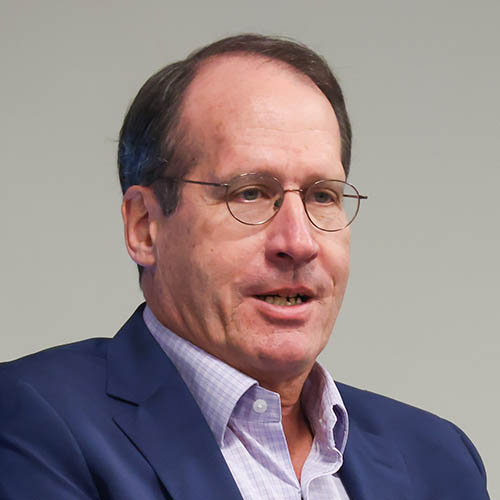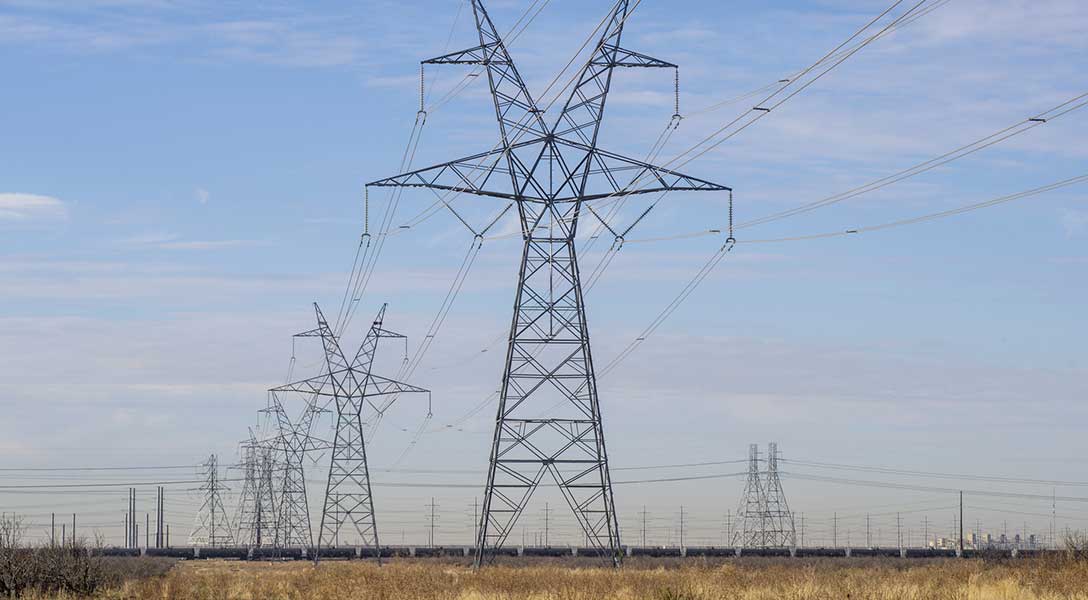
Widening gap between rich and poor poses challenge to U.S.
Q. What's “the myth that made us” that you describe in your book?
The myth is a collection of narratives about the way the world works, narratives that have done significant damage, both by structuring the way the economy works in terms of policies and programs— in large part by structuring the way the private sector works, mostly large corporations—in a way that is just not great for many workers.
The key narratives that are part of the myth include the pull-yourself-up-by-your-bootstraps narrative, the idea that all you have to do is work hard and you will succeed. It is a great aspiration, and in some ways it lies at the heart of our founding principles as a nation. But it's not a good description of reality, which is not to say that hard work doesn't matter.
A second one is that we are a post-racist nation—the idea that there may have been some racial issues earlier, but they're behind us and there are no effects of that today. And I say that the data and the history make it fairly clear that's just not true.
A third narrative is that private enterprise, especially large enterprises, is responsible solely for maximizing shareholder value. That's its responsibility. Milton Friedman in 1970 said anything else that a private firm does is tantamount to socialism.
You don't want to be called a socialist in the United States. And I'm not. I'm a capitalist. The problem is, there's nothing wrong, of course, with trying to maximize your profits and be efficient. But the way our companies have construed that maxim is that they have to maximize profits at the expense of many of their workers—not their CEOs, not their high-end workers—but their low- to middle-income workers who have on average not benefited from the riches that the economy has accumulated in the aggregate.

A fourth narrative involves the role of government in the economy.
Ronald Reagan in 1981 said our social problems are best solved by the private sector because it comes up with efficient solutions. Now, the private sector does some things very well. But there are no incentives or rewards for the private sector for solving our social problems.
For average citizens like me and you, we often use those narratives to look at distressing outcomes (such as poverty) and say, “Well, that's because they (low-income individuals) didn't work hard enough.”
So you look at the racial disparities in wealth and say, “Well, they've made bad decisions. They don't save as much as folks who are their white counterparts.”
Those narratives are used by people to dismiss bad outcomes. That's bad enough. But I think even worse is that they're used by people in positions of power, both in government and in the private sector, to continue structuring an economy to produce exactly those outcomes by providing all sorts of boosts to large corporations, to wealthy individuals, in part under the umbrella idea that, “If they're doing well, everyone else in the economy is going to do well.”
Q. How did you come to conclude that the U.S. economy and our institutions don't really offer the same opportunities to different groups?
I had the good fortune of working with low-income communities largely around New England, because I was at the Federal Reserve Bank of Boston. There are plenty of low-income communities and communities of color to talk with there.
And then going back to check my statistics, I realized that there's something wrong with the way we talk about low-income communities, as if in many cases it's their fault they are low income. We think there are personal barriers, not structural barriers. We assume they haven't made good decisions, that they didn't take advantage of the educational opportunities that they purportedly had.
I think this is really unfortunate because in talking to those residents, they're probably harder working than the people in the upper middle-income strata of our economy. These are folks who are scraping by to get a basic living, and their management of those very constrained resources is impressive.
I talked to one woman whose monthly income is $900. Can you imagine living on $900 with three kids in your household? Did she get SNAP (Supplemental Nutrition Assistance Program)? Yes. She got some rental assistance, too, and she got some heating oil assistance. So that brought her up to $2,000 a month, all told. You can't raise a family of four on that kind of income.
She somehow managed to juggle bills that were due. But in so many cases, families in those circumstances have to decide, “Am I paying the rent this month, or am I paying the heating bill?”
The one statistic actually that really struck me was not income inequality. It's looking at actual family resources—what do they (families) have in terms of earned income, in terms of asset income, plus all of the resources that they may get from government programs.
So, I looked at a source that tells me all the available resources, including government supports, and then compared it to family budgets, compiled by county, for basic necessities. So, you can rent an apartment, you can buy food, you have at least basic health care, the transportation you need to get to work. There's no vacation, leisure time, entertainment budget, nothing, just the basics.
And around the country, the number of families county-by-county that falls short of that is astonishing; it's between 40 and 60 percent.
Q. How does your narrative fit with what we see for immigrants?
Three of the families I interviewed for the book were recent immigrants from Central America who had fled gang violence—not just the prospect of violence, but their family members had already been murdered. And so they had to get out of there. I don't know what their fates will be. Ultimately, I hope that they're successful.
I would say it's not the norm that everyone who immigrates from a very poor country with very little initial family resources gets into the middle class. It does happen. And for that I am grateful and very happy for those families because I wish that for all of them.
It's still true that for many, whether they're coming from Central America or Mexico or other poor countries with poor initial circumstances, they don't get that far. There are good examples where they do, but the statistics, I think, will say they don't on average make it to real prosperity. In part, that's because we still have a fairly tortured narrative about what immigrants are about in our country.
I think it's fair to say there are still people who say they (immigrants) come in, take our jobs and commit crimes. There are a lot of negative attributes associated with immigrants when, in fact, they’re mostly hardworking. On average, they're less likely to commit crimes than native-born Americans. They pay taxes. They contribute to the safety net resources.
So they are contributing members of society, but we still view them with some suspicion as we do most people who are poor. And I think—there's good survey data on this about how people view the poor— that goes way back in our history.
It means that those people who don't enjoy success must not have worked hard enough. It's their fault. We say to ourselves, “I made it. Why didn't they?” And that's unfortunate because once we as a country get to know people who are different from us in terms of socioeconomic class, let alone race and ethnicity or sexual orientation, then we know that's not an accurate description of what's going on.
Q. What's going on with the wealth gap and how does it relate to the income gap?
When it comes to the income gap, it is not about different pay for the same job. Some of it is about people being slotted into different kinds of jobs and careers and having different jobs. To some extent, that's a choice. But that's more for the people who have the luxury of choice. That's typically middle- income workers and above. Low-income people are not making choices, they're just trying to get a job.
For the wealth gap, the median net worth for a white family is around $190,000. It's one seventh of that for Hispanic or Black families.
It's an enormous difference. And of course, that matters for all kinds of reasons, one of which might be buffering against the vicissitudes of economic life. If you're going to community college because you know it's going to help you, and you don't have any accumulated savings to buffer that (economic shock), you have to leave school and maybe you get back (to it) later, maybe you don't.
But of course, also in terms of providing security for retirement, educational opportunities, starting a business, which typically comes out of home equity, you don't have that opportunity. So, for all kinds of reasons, wealth is important.
Q. What are some ways you recommend in your book that could narrow the gaps?
No. 1 is early childhood education. (James J.) Heckman (of the University of Chicago) is, of course, the Nobel Prize winning guy who leads a lot of the research on this. He estimates—I updated this to today's dollars—that it costs maybe $22,000 annually per child for high-quality early childhood education. That's a lot, and it's out of reach for a lot of families, including some middle-income families.
If we devoted those dollars to providing that care, we would get back five to six times that in terms of economic returns of all sorts—certainly wages are higher, health outcomes are better, and there is a lower likelihood of being involved in the prison system. That doesn’t take into account all of the external (indirect) benefits that come from having more people who are now earning good wages, have stable health outcomes, including less health care and fewer incarceration costs. Those are all things that will benefit other people in the economy because they'll be generating income through their expenditures, while drawing less off of the public support system.
I spoke to someone who's a community college administrator here (in Dallas). The community colleges are an underutilized resource. They educate over 40 percent of people who get post-high school degrees—disproportionately people of color, disproportionately poorer folks.
If you could get another million or 2 million people through the community college each year with a well-defined pathway that partners with a private sector employer who needs that skilled labor, you could spend $25 to $50 billion annually. But the returns in terms of increased wages alone are probably four to five times that.
Other policies are things that are more about either a transfer of wealth or immediate gift of wealth. And those are much more controversial.
Down-payment assistance on the purchase of a house is a wealth transfer. It can be significant because we have programs in Massachusetts that give up to $50,000 or a little bit more. You are now giving a person $50,000 of equity in their home to start with, and now you made a difference. Is that a wealth transfer? Absolutely. But it is less controversial because it builds the American dream of owning a home.
The second one (idea) is baby bonds. It’s more controversial, but interesting because it's a big-tent policy.
It's a deposit in a newborn's savings account scaled by family income and wealth resources. So white kids who don't have much income or wealth get a deposit. So will the Black kids who disproportionately have less income and wealth. It will address income and wealth gaps over time more broadly.
At age of 18, (the bond matures) and the money can be used for specific expenses like education or the purchase of a home or to start of a business. So the accounts are generally restricted, they're for specific uses.
It is not only building wealth for people of color, which is sorely needed, but let's be frank, there are more white families suffering from poverty and low wealth than there are families of color.
It's possible that the main benefit of baby bonds is that it changes the community mindset toward a college education or a post-secondary school orientation.
The last wealth transfer (proposal) is reparations. We as a country are responsible for what we've done to some of our citizens. We are responsible for the lingering effects of those actions, which are there today for descendants of former African American slaves. We're responsible for that.
The first part of the process is just talking about it and putting together studies to say, “Well, how would you do this?”
Starting the conversation that begins with recognition of the history and what we did and didn't do is important. And then we'll figure out what we can and can't do. Maybe it's baby bonds that are the best way forward, I don't know.
It (reparations) is just a much bigger program to work on, and no question it would face significant political and personal blowback. I've already experienced some of that myself. I'm willing to anger some people by entertaining it and starting to talk about it. I know it's not an easy topic.
The views expressed are those of the speaker and should not be attributed to the Federal Reserve Bank of Dallas or the Federal Reserve System.



